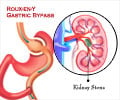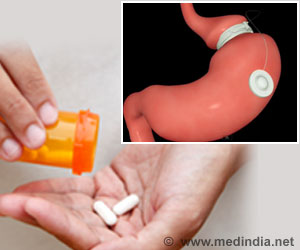Intentional self-poisoning by medications was the most common mechanism of attempted suicide. Other methods included alcohol, physical trauma and poisoning.

The study said, "Intentional self-poisoning by medications was the most common mechanism of attempted suicide. Other methods of self-harm included alcohol, physical trauma and poisoning by toxic chemicals."
Lead author Junaid Bhatti of the Sunnybrook Research Institute, Toronto, said, "The findings suggest a need for more careful follow-up of bariatric surgery patients. Some 200,000 such operations are performed annually in the United States. These adverse events undermine the overall benefits of bariatric surgery."
The researchers did not identify specific reasons for the spike in self-harm attempts. Experts have known that shrinking the size of the stomach via surgical means can also alter alcohol metabolism, and may boost risky behavior.
The study is published in the Journal of the American Medical Association (JAMA) Surgery.
Source-AFP














